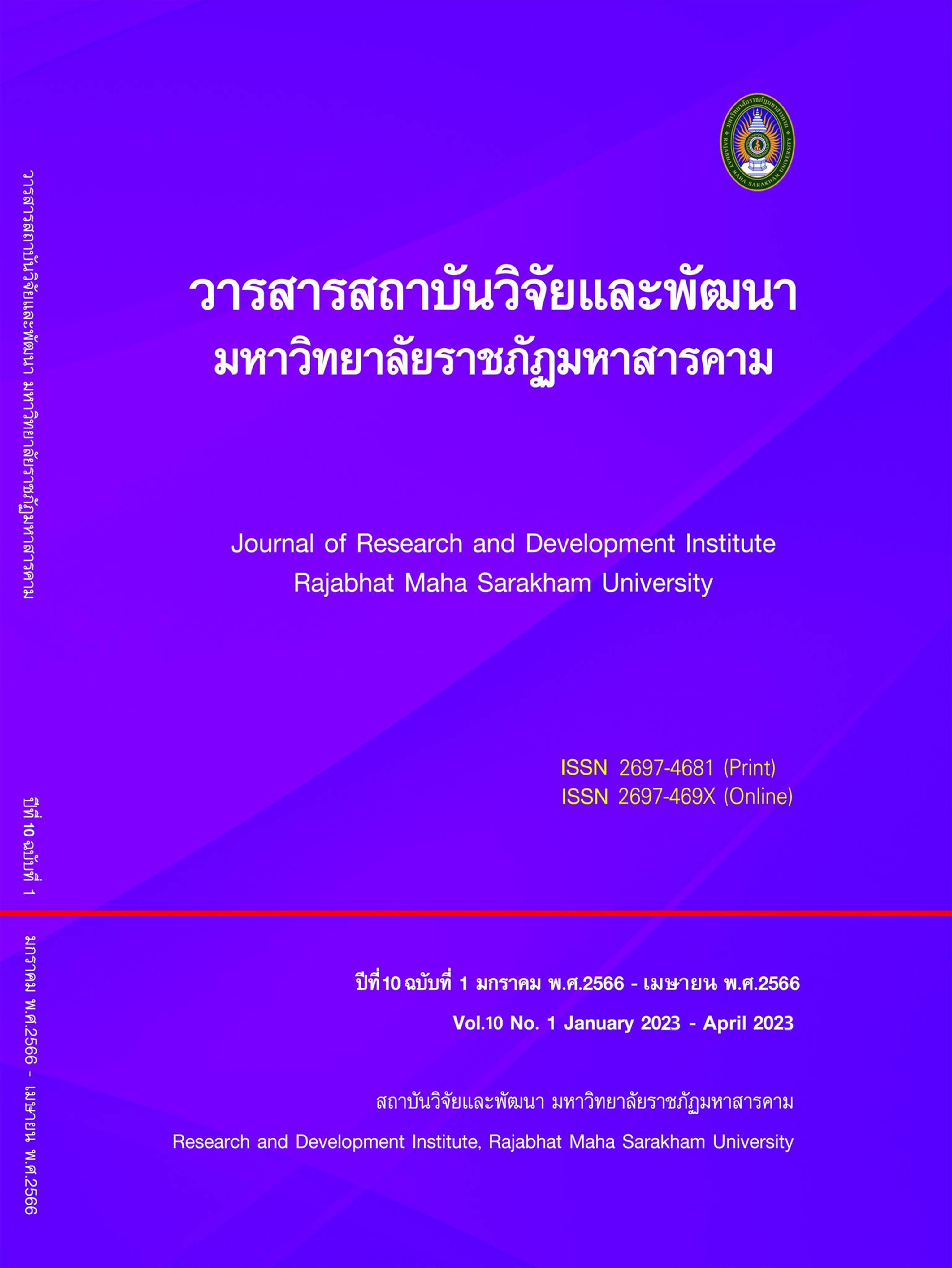The development Problem Solving Abilities of students in grade 3 by teaching and learning STEM education
Keywords:
STEM education, problem-solving abilitiesAbstract
The purpose of this research is to develop problem solving abilities. of students in grade 3 by teaching and learning STEM education with a passing score of 70 percent or more, using an action research process based on Kurt Lewin's concept. The sample group used in this research was Grade 3 students at Ban Tha Muang School. Roi Et Province, the second semester of the academic year 2022, consisted of 15 students. The research instruments were 1) 3 learning management plans 2) problem-solving behavior observation form. The researcher analyzed the data from the problem-solving behavior observation form, analyzed the data by finding percentage, mean, processing, compiling, and summarizing the results as an essay.
The results showed that Students have scores to assess their problem-solving abilities. Passing the specified criteria, that is, students have scores to assess their ability to solve problems. Passing the criteria of 70% or more, there are 15 people, representing 100%.
References
Chansuwan, K. et al. (2020). The development of academic achievement in science and problem solving abilities. of Mathayomsuksa 1 students by learning management with a problem-based process based on STEM education. Nakhon Pathom : Nakhon Pathom Rajabhat University.
Institute for Academic Quality Development. (2012). Grade 3 basic science textbook according to the basic education core curriculum, 2008. Bangkok: Publisher, Academic Quality Development (Por.) Co., Ltd.
Ministry of Education. (2017). Basic Education Curriculum. Science learning subject group. 1st edition. Bangkok: The Agricultural Cooperative Association of Thailand Ltd.
Munkham, S. (2008). Complete thinking. (9thed). Bangkok: Printmaking.
Noithaisong, T. (2018). Development of Problem Solving Ability and Science Learning Achievement by STEM Educational Learning Management. electric circuit of Prathom Suksa 6 students at Rajabhat Rajanagarindra University Demonstration School Chachoengsao Province. Nonthaburi : Sukhothai Thammathirat Open University.
Polyiam, T. (2018). Learning Outcomes of Bachelor of Education Curriculum: In General Science Program (Revised Edition B.E. 2017). Journal of Educational Measurement, Maha Sarakham university. 26(2) : 134-145.
Suksamran, P. (2017). The Development of Science Learning Management Model Based on STEM Education Concepts that Promote Scientific Mind and Problem Solving Skills. For elementary school students. Bangkok : Naresuan University.
Suthinarakorn, W. (2019). Action Research: Research for Freedom and Creation. (3rd ed). Bangkok: Siam Review Publishing House.
Suwanich, C. (2017). STEM Education and learning management to develop teacher professional students to have Characteristics of learners in the 21st century under Thailand policy. Journal of Education, Silpakorn University, 15(1): 18
Downloads
Published
How to Cite
Issue
Section
License
Copyright (c) 2023 ปาณิสรา ลีสา, กัญญาวดี แสงงาม

This work is licensed under a Creative Commons Attribution-NonCommercial-NoDerivatives 4.0 International License.
Articles that are published are copyrighted by the authors of the articles







